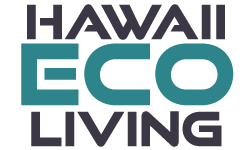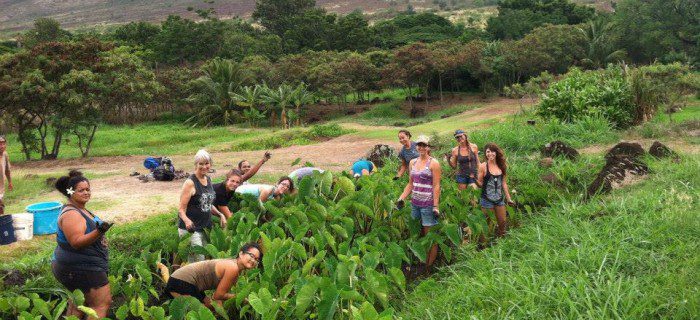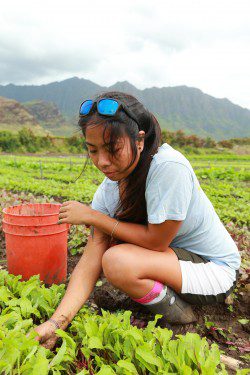Colonization has negatively impacted indigenous communities’ health, wealth, and culture around the world—and Hawai‘i is no exception. As a FoodCorps service member with MA‘O Organic Farms, I have the privilege of working alongside visionary colleagues who are working to re-establish Hawaii‘s ancestral abundance.
Mala ‘Ai Opio—which translates to “the youth food garden” or MA’O for short—is a youth empowerment farm and social enterprise in Wai‘anae on the west side of O‘ahu. Our mission is to empower youth in the Wai‘anae community through leadership training, economic development and secondary education, while producing quality organic produce in a culturally appropriate, socially just and environmentally sustainable way. The farm covers the cost of tuition for its student interns to earn an associate degree with a certificate in community food systems, while also providing opportunities for them to learn by stewarding the land. It is a space for students of this community to practice Hawaiian values through organic farming in a way that seeks to transform the local economy into one that is more just and equitable.
Currently, about 40 youth between the ages of 18 and 25 run the farm. On production days (Mondays, Wednesdays and Fridays), some of the seasoned interns begin work before the sun rises over the Wai‘anae mountain range to harvest salad greens while the temperatures are still cool. By seven in the morning, all of the interns are present for opening circle to chant “E ho mai” (a traditional chant that asks us to be open to receiving knowledge for the day) and set the day’s objectives. They grow a wide variety of produce from “apple bananas” to the ever-popular kale, and are responsible for every aspect of producing quality food: soil preparation, planting, harvesting, washing, packing, and delivery. The farm’s partners include restaurants, health food stores and supermarkets across the island. Food our interns have lovingly grown can also be found at three farmers’ markets and in CSA boxes. I’m constantly impressed by the interns’ ability to take the lead on farm operations, balance schoolwork and home life, and simultaneously grow into their role as community leaders.
At MA‘O, I serve under the Farm-to-Fork program, which engages students in hands-on learning related to growing food, community-based food systems and healthy eating. Much of my service focuses on decolonizing diets and helping to reawaken student and family relationships with the ‘aina—the land that feeds. This is especially important in light of the historical context of land dispossession and subsequent cycle of poverty that the Native Hawaiian community has experienced. On average, a Native Hawaiian will live 6.2 years fewer than others in the state. 1 Health disparities in this community also include higher rates of diabetes (130 percent), heart disease (68 percent), and cancer (34 percent) compared to state averages. This is particularly concerning considering that ancient Hawaiians were a completely self-sufficient and healthy people before Western contact.
via Restoring Ancestral Abundance Through Youth Empowerment in Hawai‘i : Food First.


